On August 23…
“Wallace made Scotland, he is Scotland; he is the symbol of all that is best and purest and truest and most heroic in our national life. You cannot figure to yourself Scotland without Wallace. So long as grass grows green, or water runs, or whilst the mist curls through the corries of the hills, the name of Wallace will live.”
~Robert Bontine Cunninghame Graham
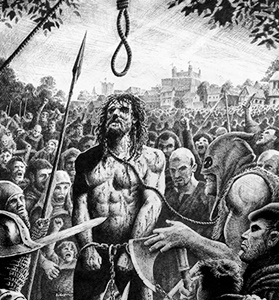
1305 – William Wallace, a Scottish knight and military leader during the first war of Scottish independence, was executed in London.
Wallace was taken to London where he was tried for treason and for atrocities against civilians in war. During the trial he was crowned with a garland of oak to suggest he was the king of outlaws. He responded to the treason charge, “I could not be a traitor to Edward, for I was never his subject.”
His life story was loosely depicted in the 1995 film Braveheart, starring Mel Gibson.
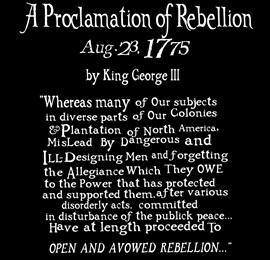
1775 – In response to the news of the Battle of Bunker Hill, King George III delivered his Proclamation of Rebellion to the Court of St James, stating that the American colonies had proceeded to a state of “open and avowed rebellion.”
The king insisted that many colonists had been “misled by dangerous and ill designing men,” and he insisted the rebellion was being led by a “desperate conspiracy” of leaders whose claims of allegiance to him were insincere. What the rebels really wanted, he said, was to create an “independent Empire”.
The proclamation indicated that the King intended to deal with the crisis with armed force, and was even considering “friendly offers of foreign assistance” to suppress the rebellion.
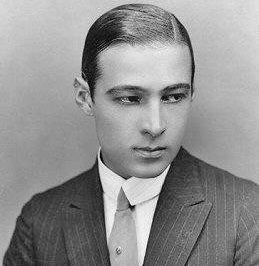
1926 – Silent film star Rudolph Valentino died at the age of 31. In his brief film career, the Italian-born actor established a reputation as the archetypal screen lover, and his death from a ruptured ulcer sent his fans into a hysterical state of mass mourning, with dozens of suicide attempts reported.
Tens of thousands of people paid tribute at his open coffin in New York City, and 100,000 mourners lined the streets outside the church where funeral services were held. Valentino’s body then traveled by train to Hollywood, where he was laid to rest after another funeral.
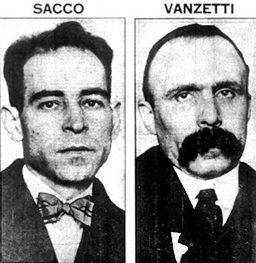
1927 – Despite worldwide demonstrations in support of their innocence, Italian-born anarchists Nicola Sacco and Bartolomeo Vanzetti were electrocuted in Boston for the murders of two men during a 1920 robbery.
On April 15, 1920, a paymaster for a shoe company in South Braintree, Massachusetts, was shot and killed along with his guard. The murderers, who were described as two Italian men, escaped with more than $15,000. After going to a garage to claim a car that police said was connected with the crime, Sacco and Vanzetti were arrested and charged with the crime. Although both men carried guns and made false statements after their arrest, neither of them had a previous criminal record.
The trial was regarded by many as unlawfully sensational. Authorities had failed to come up with any evidence of the stolen money, and much of the other evidence against them was later discredited.
In the days leading up to the execution, protests were held in cities around the world, and bombs were set off in New York City and Philadelphia.
Crime Factoid: In 1961, a test of Sacco’s gun using modern forensic techniques apparently proved it was his gun that killed the guard, though little evidence has ever been found to substantiate Vanzetti’s guilt.
In 1977, Massachusetts Governor Michael Dukakis issued a proclamation vindicating Sacco and Vanzetti, stating that they had been treated unjustly and that no stigma should be associated with their names.
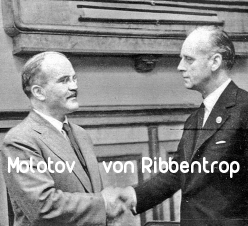
1939 – Nazi Germany and the Soviet Union signed a nonaggression treaty. Believing that Britain would never take him on alone, Adolf Hitler decided to set aside his loathing of communism and Soviet leader Joseph Stalin.
Agreeing basically to carve up parts of Eastern Europe – and leave each other alone in the process – Hitler’s foreign minister, Joachim von Ribbentrop, flew to Moscow and signed the non-aggression pact with his Soviet counterpart, V.M. Molotov.
Of course history proved that once Poland was German-occupied territory, the alliance did not last for long.
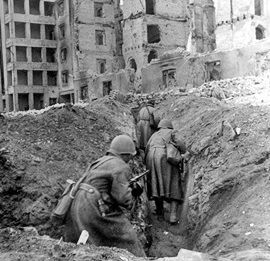
1942 – The five-month Battle of Stalingrad – one of the bloodiest engagements in modern warfare – began when the German 6th Army and the 4th Panzer Army began their assault on the city.
Within a few days of launching its attack, Germany’s Luftwaffe air force had rendered the Volga River impassable to shipping and had sunk several Russian commercial vessels in the process. Incredibly, the city’s 400,000-plus residents were not evacuated, as ruthless head of state Joseph Stalin believed their presence would inspire troops.
Russia’s brutal winter and Germany’s inability to restock their supplies and ammunition eventually turned the tide. By February 1943, the German army was defeated.
Marked by fierce close quarters combat and dozens of direct assaults on civilians in air raids, the Battle of Stalingrad was the largest (nearly 2.2 million personnel) and bloodiest (approximately 2 million killed, wounded or captured) battle in the history of warfare.
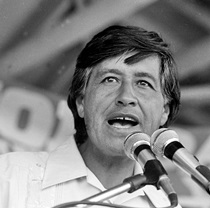
1970 – 5,000-7,000 UFW workers – led by Mexican American labor union leader César Chávez – struck the Salinas Valley growers in what was the largest farm worker strike in U.S. history.
More workers walked off the job in the next few weeks while other unions supported the strike. Shipments of fresh lettuce nationwide decreased dramatically, and the price of lettuce doubled almost overnight.
The real purpose for the strike was a contract which included a special agreement by the growers to give the International Brotherhood of Teamsters, not the UFW, access to farms and the right to organize workers into unions.
The Salad Bowl strike did not end until March 1971 when the Teamsters and UFW signed a new jurisdictional agreement reaffirming the UFW’s right to organize field workers.
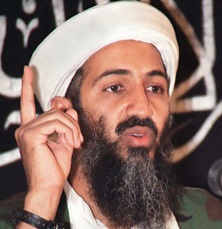
1996 – Osama bin Laden issued a warning against the United States, which was first published in Al Quds Al Arabi, a London-based newspaper. It was entitled “Declaration of War against the Americans Occupying the Land of the Two Holy Places.”
Saudi Arabia is sometimes called “The Land of the Two Holy Mosques” in reference to Mecca and Medina, the two holiest places in Islam. The reference to “occupation” referred to U.S. forces based in Saudi Arabia for the purpose of controlling air space in Iraq.
At the time, bin Laden was not a wanted man in any country except his native Saudi Arabia, and was not yet known as the leader of the international terrorist organization al-Qaeda.
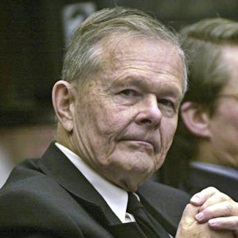
2003 – Former Roman Catholic priest John Geoghan, a convicted child molester, was strangled and stomped to death in his cell by a fellow inmate in a Massachusetts prison.
Over a 30-year career in six parishes, Geoghan was accused of sexual abuse involving more than 130 boys. He was prosecuted in Cambridge, Massachusetts for charges of molestation that took place in 1991. Defrocked by Pope John Paul II in 1998, Geoghan was found guilty in January 2002 of indecent assault and battery on a 10-year-old boy in a swimming pool at the Waltham Boys and Girls Club in 1991, and was sentenced to nine to ten years in prison.
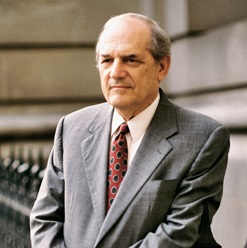
2016 – Actor Steven Hill died of natural causes at the age of 94.
Hill played small roles in films and made many appearances in television dramas but he is best known for two television programs.
He played the role of Dan Briggs, the head of the IMF team, on the first season of Mission Impossible, and later starred for ten years as District Attorney Adam Schiff on Law & Order.
Remarkable Coincidence Factoid: Hill received an Emmy nomination in 1960 for his portrayal of Bartolomeo Vanzetti in The Sacco-Vanzetti Story … and as noted above (1927), the real Vanzetti also died on August 23.
Compiled by Ray Lemire ©2024 RayLemire.com / Streamingoldies.com. All Rights Reserved.